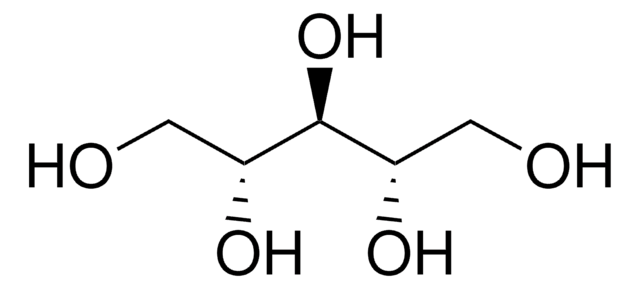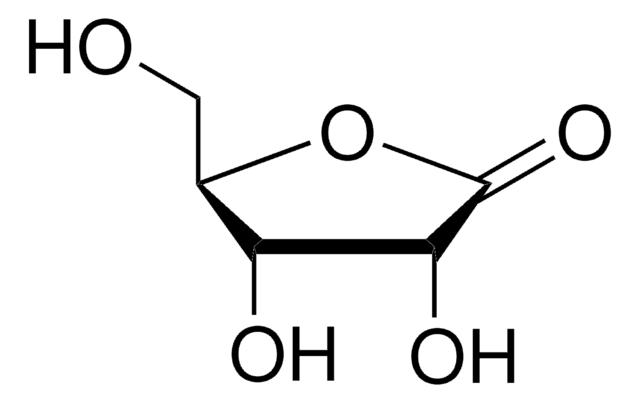R7500
D-(−)-Ribose
≥99% (GC)
Synonym(s):
Aldehydo-D-ribose
About This Item
Recommended Products
biological source
microbial (fermentation)
Quality Level
Assay
≥99% (GC)
form
powder
optical activity
[α]20/D -21.0 to -19.5 °, c = 4% (w/v) in water
technique(s)
gas chromatography (GC): suitable
impurities
≤10 ppm Heavy metals (lead)
color
white
mp
88-92 °C (lit.)
solubility
water: 100 mg/mL, clear, colorless to faintly yellow
storage temp.
2-8°C
SMILES string
OC[C@@H](O)[C@@H](O)[C@@H](O)C([H])=O
InChI
1S/C5H10O5/c6-1-3(8)5(10)4(9)2-7/h1,3-5,7-10H,2H2/t3-,4+,5-/m0/s1
InChI key
PYMYPHUHKUWMLA-LMVFSUKVSA-N
Looking for similar products? Visit Product Comparison Guide
Biochem/physiol Actions
Other Notes
Storage Class Code
11 - Combustible Solids
WGK
WGK 3
Flash Point(F)
Not applicable
Flash Point(C)
Not applicable
Personal Protective Equipment
Certificates of Analysis (COA)
Search for Certificates of Analysis (COA) by entering the products Lot/Batch Number. Lot and Batch Numbers can be found on a product’s label following the words ‘Lot’ or ‘Batch’.
Already Own This Product?
Find documentation for the products that you have recently purchased in the Document Library.
Customers Also Viewed
Protocols
Separation of Ribose, United States Pharmacopeia (USP) Reference Standard; Xylitol, analytical standard; Mannose, United States Pharmacopeia (USP) Reference Standard
Our team of scientists has experience in all areas of research including Life Science, Material Science, Chemical Synthesis, Chromatography, Analytical and many others.
Contact Technical Service
